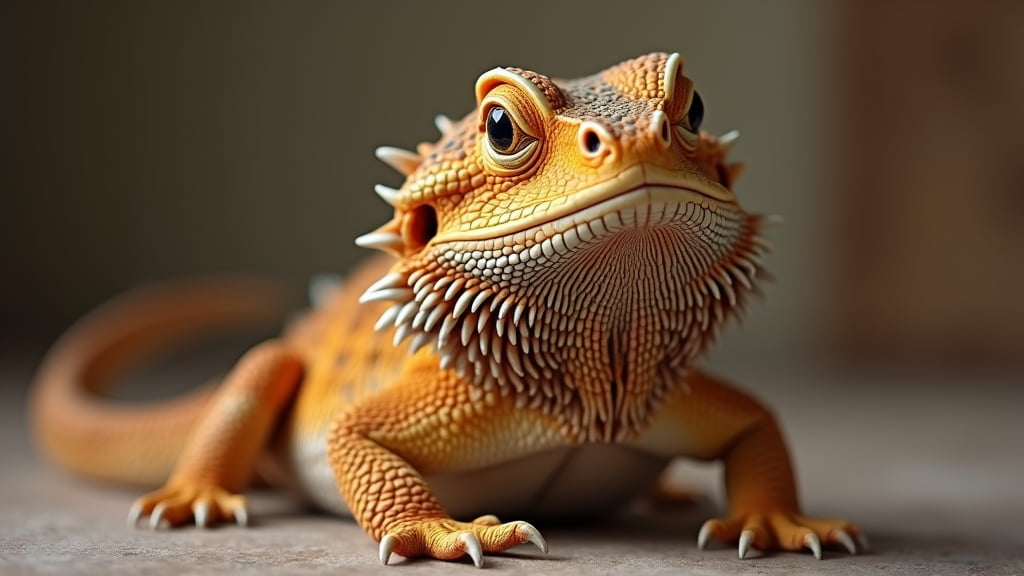Coping with Bearded Dragon Loneliness: Tips and Insights from an Experienced Keeper
Bearded dragons, or ‘beardies’ as we affectionately call them, are fascinating and unique pets. However, just like any other animal, they can experience loneliness. As someone who has kept bearded dragons for years, I understand the signs of loneliness and how to help them feel more comfortable. In this article, we’ll explore how to cope with bearded dragon loneliness, providing practical advice and insights to ensure your scaly friend remains happy and engaged.
Understanding Bearded Dragon Loneliness
Signs Your Bearded Dragon Might Be Lonely
Recognising loneliness in bearded dragons can be tricky because they are naturally solitary creatures. However, certain behaviours can indicate that your beardie is feeling isolated:
- Lethargy: If your usually active dragon is spending most of its time basking without much movement, it could be a sign of loneliness.
- Loss of Appetite: A sudden disinterest in food can be concerning.
- Glass Surfing: Repeatedly pawing at the glass of their enclosure can indicate an attempt to seek attention or escape.
- Overly Passive Behaviour: A typically curious and responsive dragon becoming unusually passive can be worrisome.
Impacts of Loneliness on Health
Loneliness can lead to various health issues in bearded dragons, such as:
- Reduced Immune Function: Stress from isolation can weaken their immune system, making them more susceptible to illnesses.
- Depression: Yes, reptiles can experience depression too! A lack of stimulation can lead to mental decline.
- Eating Disorders: Prolonged loneliness may manifest in irregular eating patterns, leading to possible malnutrition.
Practical Steps to Alleviate Loneliness
Enrichment and Environment
Creating an engaging environment can help mitigate feelings of isolation:
- Varied Hiding Spots: Provide multiple hiding places using rocks, logs, or commercial hides to make their habitat more stimulating.
- Interactive Toys: Items like climbing branches, tunnels, and interactive feeding toys can keep your beardie mentally and physically engaged.
- Visual Stimulation: Adding background scenery or safe plants can make the enclosure more visually interesting for your dragon.
Daily Interaction
Even though bearded dragons are solitary, they still benefit from interaction:
- Handling: Gently handle your dragon daily to build a bond and provide comfort through touch.
- Out-of-Enclosure Time: Allowing your beardie to explore a safe, supervised space outside their enclosure can break the monotony and provide new stimuli.
- Training: Simple training exercises, like target training with a stick, can keep their minds active.
Socialisation with Other Bearded Dragons
Risks and Rewards
While social interaction with other dragons can be beneficial, it comes with risks:
- Aggression: Bearded dragons can become territorial, so it’s crucial to monitor them closely if introducing them to another dragon.
- Health: Ensure both dragons are healthy to prevent the spread of diseases.
- Space: Adequate enclosure space is essential to avoid stress and conflict.
Safe Introduction Tips
If you decide to introduce your bearded dragon to another, follow these tips:
- Separate Quarantine: Always quarantine a new dragon for 30 days to ensure health and avoid spreading potential illnesses.
- Neutral Territory: Introduce them in a neutral space, not within either dragon’s territory, to reduce the risk of territorial aggression.
- Supervised Interaction: Closely supervise interactions and be prepared to separate them if aggression occurs.
Conclusion
Coping with bearded dragon loneliness requires understanding their behaviours, enhancing their environment, and providing regular interaction. As a seasoned keeper, I’ve found that even small changes can significantly improve a bearded dragon’s quality of life. Whether through environmental enrichment, daily handling, or carefully managed socialisation, your beardie will thrive with a bit of effort and attention.
For more on bearded dragon care, check out our other articles and visit this expert reptile care guide.

